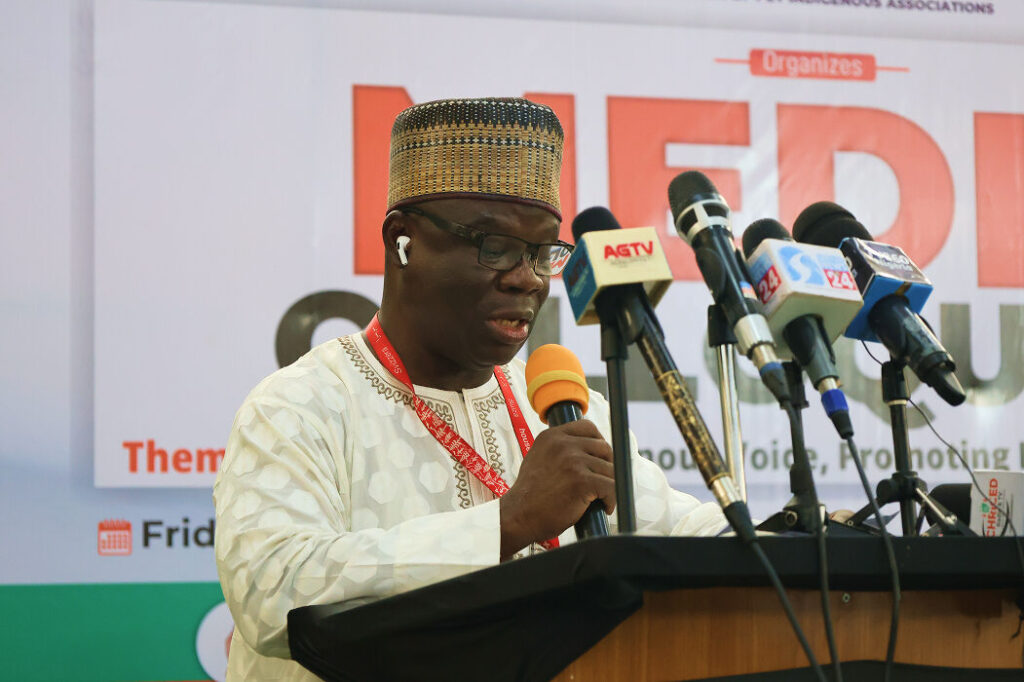Distinguished traditional rulers, esteemed development partners, respected members of the media, civil society leaders, scholars, and all advocates for justice and inclusion,
Good morning.
It is with profound gratitude and a deep sense of purpose that I welcome you to this landmark symposium commemorating the 2025 United Nations International Day of the World’s Indigenous Peoples. Today, we gather under the theme: “Empowering Indigenous Voice: Promoting Indigenous Rights and Preserving Culture.” This theme resonates powerfully—not only with the global Indigenous struggle—but with the lived realities of the original inhabitants of the Federal Capital Territory.
Let me begin by expressing our sincere appreciation to the John D. and Catherine T. MacArthur Foundation. Their unwavering support and commitment to advancing human rights, equity, and inclusive governance have made this gathering possible. Through their partnership, we are able to create spaces like this—where silenced voices can speak, where erased histories can be reclaimed, and where marginalized communities can find solidarity and strength.
The story of Abuja is one of paradox. While it stands as the symbol of national unity and modern development, it is also a place where the indigenous communities—the Nine Tribes and Seventeen Chiefdoms—have been pushed to the margins of political and cultural recognition. Their ancestral lands have been transformed, their governance structures sidelined, and their rich heritage often ignored in the narrative of progress.
But today, we say: no more.
This symposium is not just a ceremonial event. It is a platform for truth-telling, for historical correction, and for collective action. It is a space where Indigenous leaders, scholars, activists, and allies come together to challenge the silence and demand justice. Through presentations, performances, and dialogue, we will explore how media can be a powerful tool for amplifying Indigenous voices, preserving cultural identity, and promoting inclusive governance.
We must remember: Indigenous rights are not peripheral—they are central to any society that claims to be democratic and just. Empowering Indigenous communities is not a favour—it is a constitutional and moral obligation. And preserving Indigenous culture is not nostalgia—it is a strategy for sustainable development rooted in wisdom, resilience, and diversity.
As we engage today, let us do so with open minds and courageous hearts. Let us listen deeply to the voices that have long been ignored. Let us commit to building a future where Indigenous peoples are not just remembered but respected; not just consulted, but empowered.
Once again, we thank the MacArthur Foundation for standing with us in this journey. Your support is not only financial—it is a statement of solidarity and a catalyst for transformation.
May today’s conversations ignite action. May they inspire policy. And may they restore dignity to FCT Original Inhabitants whose stories deserve to be heard, honoured and upheld.
Thank you, and welcome.

